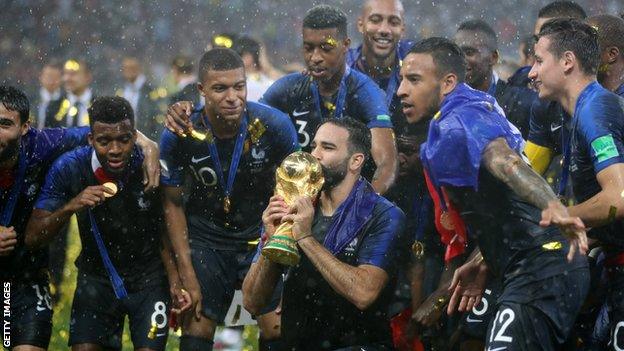World Cup every two years threatens other sports and gender equality, says IOC
- Published

France beat Croatia in the last World Cup final in 2018
The International Olympic Committee believes Fifa's plans to hold a men's World Cup every two years pose a threat to other sports and gender equality.
Biennial World Cups could cause a clash between the football showpiece and the Olympic Games - a major event in the women's football calendar.
An IOC statement said conflicts with other events "would undermine the diversity and development" of sports.
It added more men's events would create "challenges" for women's football.
Earlier in October, a joint statement from Uefa and 10 European women's leagues said the plans could be "profoundly detrimental".
In September men's leagues confirmed their opposition to world governing body Fifa's idea, which would mean the women's World Cup taking place in the same summer as a major men's tournament.
The IOC said it "shares concerns" raised by other sporting bodies, including around player welfare, stating doubling the frequency of the World Cup "would create a further massive strain on the physical and mental health of the players".
The Olympic governing body said it supports calls for a wider consultation with athletes' representatives adding that this "has obviously not taken place".

Our coverage of your Premier League club is bigger and better than ever before - follow your team and sign up for notifications in the BBC Sport app to make sure you never miss a moment
